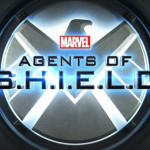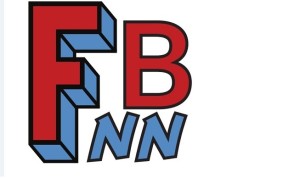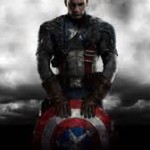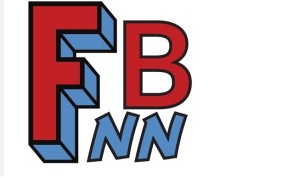I did a review of Agents of S.H.I.E.L.D at the beginning of the season and, as I did with Arrow last year, I vowed to do a follow up review at the end of the season to see how the show ended up. I think this is going to become a tradition here at Fanboy News Network.
If you want a refresher on what I said in the first review please go here. I’m going to assume you have read that review before going into this one. Be warned, I am not going to avoid spoilers, so if you have not seen the season finale you may want to hold off reading this.
So what changed on Agents of S.H.I.E.L.D between the last review and now? Damn near everything.
The biggest complaint about the show was that for a TV extension of the Marvel Cinematic Universe (MCU), Agents of S.H.I.E.L.D didn’t feel that connected to the movies or the comics outside of the occasional name drop. Of course, what seemed like a bizarre oversight turned out to be a high stakes gamble by the producers. Knowing the plot of Captain America: The Winter Solider in advance, the whole front end of the season was one massive build up to that story. While the price of that gamble was a major slip in the ratings and much rancor from the fanbase, the payoff was incredible.
It also allowed a build up to that event, starting with the return from the mid-season break, and for some real delving into the mystery of Coulson’s resurrection.
This level of coordination between a film and TV show is unprecedented, which is a word that gets tossed around in regards to the MCU a lot. It also took a show that was good and made it riveting, as the entire status quo of the series was obliterated.
Out of this you got a fresh look at the characters.
Grant Ward got a lot of this. In the early part of the season a major complaint about the character was how bland he was. In hindsight, this was brilliant as it was later revealed that Ward was an agent of Hydra. His blandness went from just a flaw to a cover that hid his true allegiance. I am also impressed by the dedication to this development. It would have been easy to write in a change of heart in the finale and have Ward attempt to redeem himself, and thus rejoin the team. Instead, they doubled down on the betrayal and simultaneously showed that Ward is, in his heart, a follower who is lost if no one is giving him orders.
Melinda May turned out to be a very interesting character, once the story really got going mid-season. The revelation that she created the team, and was tasked with monitoring Coulson, cleared up a lot of issues that hampered the show early on and allowed for some great character moments. It also allowed her to have complex relationships with Coulson, Ward, and Skye.
Fitz and Simmons were on the short end of the stick when it came to character development, early in the season, but their arcs have become interesting, as the show continued on. Fitz is a company man through and through, will follow Coulson whatever the circumstance, and is the one that struggles the most when Hydra strikes. Simmons is more interested in discovering the truth, and will go behind the team’s back if necessary. They also had the development that their feelings for each other were complicated. Early in the season fans couldn’t tell if their relationship was meant to be romantic or more like siblings. The reveal was that for Simmons it was sibling, and for Fitz it was romantic. The resolution of this is one of the cliffhangers at season’s end and it will be interesting to see how they deal with it next season.
Skye was an early source of derision amongst the fanbase. Because she was there to act as an audience proxy, she was a focus point for most of the early episodes. Due to this, she was declared a Mary Sue. Which the show decided to poke fun at by having her reveal that the orphanage she grew up in gave her the name Mary Sue Poots. Later episodes still had her as big part of the story, but gave more balance to other characters. Her big reveal was that she may not be fully human, and that her parents are described as being monsters. There is great potential here, especially if they make whatever she really is something from the comics such as an inhuman, or an eternal.
Phil Coulson always had the advantage of being the character everyone had already warmed to from his appearances in the MCU movies and one-shots. He also had the built in mystery story arc of how he managed to still be alive after the events in The Avengers. It was the revelation of how he was brought back to life mid-season that marked the shows turnaround from just ok to really engaging. It was also great to see Clark Gregg take the character and flesh him out. With an entire series to work with, we got to see more of what drives Coulson; his idealism and his doubts were both on display. I also want to touch on, for perhaps the last time, the article I wrote prior to the release of the Avengers where I mentioned that Tom Huddleston had said Loki would be up against 8 heroes, and I speculated on who the eighth Avenger was. In the finale, Nick Fury came out and said that he considered Coulson an Avenger.
Outside of the main cast you had some very interesting reoccurring characters:
First, I would like to point out Antoine “Trip” Triplett (played by B.J. King) who was introduced as a S.H.I.E.L.D agent working with John Garrett. Trip’s role on the team evolved into being their new specialist, after Ward was revealed to be a Hydra agent. Trip avoided the blandness issue that plagued Ward by being made the grandson of one of Captain America’s Howling Commandos. This gives him a connection to the MCU movies and he and Coulson are able to bond over their shared love of S.H.I.E.L.D’s history. He also flirts with Simmons, creating tension with Fitz.
Mike Peterson (played by J. August Richards) is a character that appeared in the pilot, and had the subversion of being made into Deathlok, thus retroactively becoming a character from the comics. Like that character, he starts out as a reluctant villain. In the finale, he is freed from Hydra’s control. My hope is he will be followed up on in season two, and we will get to see his redemption story.
John Garrett (played by Bill Paxton) is a subversion from the comics. Like his comic incarnation, he is a S.H.I.E.L.D agent that is made into a cyborg. But, like Alexander Pierce in the Captain America: The Winter Solider, he subverts those roots by being a Hydra agent. Garrett is an example of a well built character arc. He is friendly and helpful before he is revealed to be the bad guy, giving his heal turn some real bite. Once he is free from the need to pretend, he proves manipulative and self-serving. He turns into a great foil for the team and makes a memorable bad guy.
The biggest flaw of the series is that, even though they knew where they were going with the Hydra plot from day one, they so underplayed it that early part of the season seems disjointed and not at all connected to the MCU. While they made up for it in the second half, they had an uphill battle to regain the goodwill of the fanbase.
Based on all of this, I give Season 1 of Agents of S.H.I.E.L.D a final grade of B.




